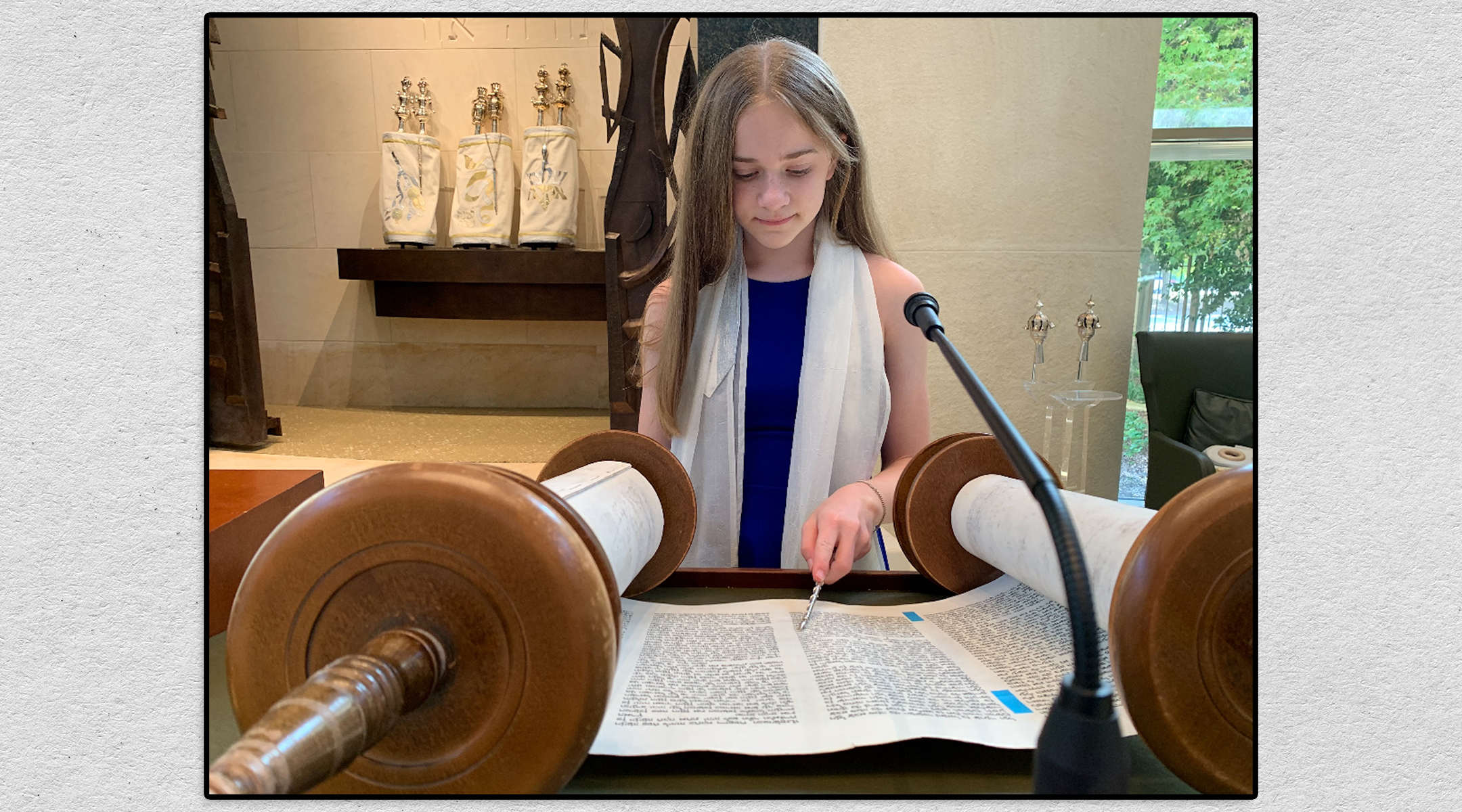This article was produced as part of (JEWISH REVIEW)’s Teen Journalism Fellowship, a program that works with Jewish teens around the world to report on issues that affect their lives.
I am Jewish, but Christianity has filled my life. The earliest memory I have going to school in Arkansas involves reciting a prayer about Jesus before and after every meal. We would walk in the lunchroom in our school-issued uniforms, sit down with our food, and be told to rise again to bless our food.
Because my dad’s job includes moving to various small towns across the south to grow their economic development, moving has been a constant in my family. Currently I’m a senior in high school and I have attended four different high schools in Texas. Although moving has so many benefits, like going out of your comfort zone and meeting all kinds of people from different backgrounds, each move also has its own struggles. The challenge I found most constant was the lack of a Jewish community.
I was 3 years old the day we moved to Arkansas from Louisiana. My mom’s cousin’s wife, who grew up near where we had just moved, told us to never tell anyone we were Jewish. She claimed there was an active Ku Klux Klan organization just outside of our town and warned us of the dangers.
For the three years we lived there, we hid our identity as much as we could. My siblings and I went to a private Christian school and our family celebrated Christian holidays, hoping to fit in. Each year, my siblings and I would go to sleep early on Christmas Eve excited for Santa to come. We never celebrated the Jesus aspect of these holidays. But we also never celebrated any Jewish holiday. I never really knew what it meant to be Jewish. All I had known was that I was supposed to hide it. It turns out, these experiences helped me to embrace my Judaism today.
A few years later, when we moved to Texas, the only quality middle school in town was, again, a private Christian school. So there I was, again, a hiding Jewish teen in another small town. This new school had weekly chapel services, mandatory Bible classes, and imposed strict beliefs – the main tenet being that if you did not believe in Jesus, then you would go to Hell.
At this same time my mom discovered a synagogue in Fort Worth that had a strong youth community. We committed to the four hour round trip every Sunday. It was at this synagogue where I met other kids just like me.
Emily Florsheim, center, and classmates at Christ Academy where she attended middle school in Wichita Falls, Texas. (Courtesy)
Throughout 6th grade, however, I did not come out of my shell. I attended chapel services, participated in Bible class, and let my Judaism become fully hidden. I didn’t really believe in what my school taught, and I became even more introverted. Even though I attended synagogue every weekend, I felt like I was hiding the most important thing to me at school. When seventh grade rolled around and we began reading the Book of Ruth in Bible class, Purim showed up on the lesson plans. My mom, being good friends with my Bible teacher, agreed with her that this would be a good time to introduce our religion to my classmates. My mom convinced me to bring hamentashen to class and talk a little about Purim. It was the first time I can remember truly feeling Jewish outside of my home. Some people, adults and students, told me they had never met a Jewish person before, and it felt kind of cool that I could be their first.
Nevertheless, later on in the semester, a newly hired teacher said to me, “You are going to hell.” I didn’t know how to react. Sure, some of the things I was taught in Bible class hinted at this belief, but I was never told this directly before.
I’m not the only Jew who lives in a small town. According to one study, Jews who live in communities with 5,000 Jews or fewer comprise 4.4% of the country’s Jewish population.
One of them is Lila Katz, a senior at the University of Texas at Austin who hails from the town of Tyler in East Texas.
Katz didn’t have the option to hide from her Judaism. Her father, Neal Katz, is a rabbi of Beth El Congregation in Tyler, a 137-year-old synagogue with a few hundred members. Two miles away is the conservative congregation Ahavath Achim. The rabbi said it is about 10 years younger and has about 100 or so members.
“It’s difficult because you’re very visible,” said Katz. “Everyone knows who you are, especially in a small town and around the Jewish community.”
For Katz, the challenge was about navigating the complexities of her faith in a town where being Jewish could sometimes feel isolating. Growing up in the public eye, trying to maintain her own sense of self in a place that, at times, seemed to offer little space for personal exploration was difficult.
She recommends young people use the disconnection from others as a push toward the Jewish community. “If you feel disconnected because of antisemitism, don’t let it don’t let it dissuade you from being connected to your Jewish community,” Katz said. “Being connected to your Jewish community will help you find strength in the face of antisemitism.”
Throughout the past few years, my connection to Judaism has grown immensely. If you had told me freshman year that one day I would have tons of Jewish friends from across the globe, I would not have believed you. And since Oct. 7, my Jewish identity has only grown. Especially after going to Israel in the summer of 2023 with BBYO, a Jewish youth organization, Israel forever has a piece engraved within me. As I finish up high school and continue my educational journey, finding a Jewish community wherever I go will be important to me.
After I attend college at Texas A&M, I plan to live in a much larger city — not just to have a bigger Jewish community around me, but to feel like I can truly celebrate my identity. I want to do exactly as Katz said, finding strength in my community. Now that I don’t have to hide it, I want to celebrate my Jewishness with other Jews.
The views and opinions expressed in this article are those of the author and do not necessarily reflect the views of (JEWISH REVIEW) or its parent company, 70 Faces Media.




